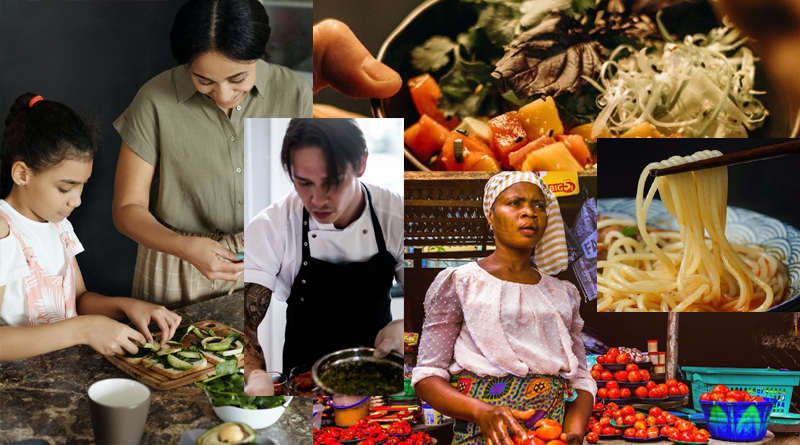WORLD FOOD TRAVEL ASSOCIATION
The World Food Travel Association (WFTA) was founded in 2003 as a non-profit and non-governmental organization (NGO) and has become a leading authority on food and beverage tourism. It seeks to create economic opportunities where food and beverage meet travel and hospitality.
We chatted with Erik Wolf, founder and Executive Director of the World Food Travel Association …
The World Food Travel Association recently released its latest research ‘2020 Food Travel Monitor’ – what are the key take-aways in relation to the current state of Food Tourism?
Every few years, we publish an updated Monitor with our industry’s latest and greatest findings. The 2020 Monitor did not disappoint. Just a few of the major discoveries include:
Interest in food and drink continues to grow rapidly. Thanks to social media and video programming, we now love and want great food and drink more than ever. And our data shows that 96% of all leisure travellers have engaged in a unique or memorable food or drink activity other than dining out. In other words, nearly everyone is doing it!
While interest in culinary travel remains steady in the more developed world, developing nations like Mexico and China are driving exponential growth in food and drink experiences while traveling.
The first data about Generation Z is now available and we’re seeing a new generation of “Super Foodies”. It makes sense when you realize that the Gen Z parents are millennials – already massively interested in food.
Beyond this strong interest in food, Gen Z is also concerned about social responsibility, animal welfare and other polarizing issues around food. And, they’re taking their values and behaviours on the road with them, so businesses everywhere on Earth need to be prepared to meet their demands.
“Local” and “authentic” are now taken for granted by consumers everywhere. In other words, promoting what’s local and authentic will no longer get people through the door. Businesses and destinations need to do more.
Use of social media is starting to wane. Perhaps because of the Facebook data privacy scandal and general fatigue with food porn on Instagram, people are starting to think about alternatives to social media. What’s taking their place? Friends and family!
And because of the pandemic, we just revisited our conclusions from January 2020 and added a 20-page supplement to the Monitor to cover any additional changes we expect to the food and beverage tourism industry because of it.
According to your research, how concerned are travellers about sustainability and responsible food tourism?
The trend toward social responsibility is evident. Over half of leisure travellers try to eat at places which demonstrate social responsibility while they travel.
Younger food travellers are leading the way: 63% of Millennials try to eat at places which demonstrate social responsibility, compared with 51% of Generation X and 35% of Boomers. Those who do not get on board will find it harder to succeed.
The effect of the pandemic has made consumers and travellers alike increasingly sensitive to corporate responsibility and also the travellers’ own responsibility in food tourism. If this was something that was just “on your radar” before, now businesses and destinations need to move sustainability and responsibility front and centre in their new marketing verbiage.
Cutting back on meat consumption is a big trend in the UK – but how much are you seeing this in the food offerings available to tourists (not just in restaurants, but in tours, cookery lessons etc.)?
There has been a surge of growth in special diet preferences, not just by consumers, but also by travellers – who are just consumers who take their values and behaviours with them when they travel. Vegetarian, vegan and gluten-free are the biggest gainers. While we would not say it is becoming the norm for all travellers, it is important enough that every tour company, tourist guide and cooking class now should be offering ways to accommodate interest in alternative diets and concern for food allergies.
How do you see Gastronomy Tourism developing in the coming years – and what role will sustainability and the meat-free eating play?
The gastronomy tourism industry is already changing. We are witnessing technology – things like tablets to order on or robots that bring your food – changing how consumers experience food. While it seems trendy to offer such flashy gimmicks, businesses forget that it’s the people that make a business – and the customer experience – unique. For example, you can’t ask a robot to recommend their favourite hiking or biking paths.
As for sustainability and special diets, those behaviours are already mainstream. Older generations die and take their outdated behaviour with them. The challenge will be for culinary cultures that are meat heavy (Spain and Argentina come to mind), to put the spotlight on their meat-free dishes. Every culinary culture has meat-free dishes. Yet, the majority of restaurant owners still think meat comes first. Some forward-thinking restaurants, like The Canteen and Old Market Assembly (both in Bristol, UK) are offering plant-based choices first, with meat choices as an add-on. It’s a clever way to get people to think about changing their behaviours.
What’s your advice, for 2020, to the Gastronomy Tourism sector?
In our 2020 State of the Food Travel Industry Report, the industry experts we surveyed indicated that preserving culinary culture – and authenticity – are the biggest challenge facing our industry right now. If there is a Café Nero or Starbucks (or other multinational chains) in every city on Earth, then you start to see the problem: the reason to travel for food and drink is less compelling when multinational chains are the prevalent offering.
Local business owners – and tourism offices as well – will need to think creatively about how to keep their offerings both traditional and in sync with consumer trends – such as meat-free diets. It’s a lot easier to do than one might think. For example, consider a paella made with no meat or seafood, but roasted red peppers, artichokes, cloves of roasted garlic, mushrooms and sundried tomatoes. A traditional dish with a modern twist.
Innovation in cuisine isn’t the only thing to keep an eye on. Our research has proven time and time again that today’s consumers – and travellers – are concerned about waste, and specifically food waste and food packaging waste. Things like plastic takeaway containers, Styrofoam coffee cups, plastic straws and cutlery – they all make us cringe. Consumers are already evolving and taking a stand against businesses that don’t change. Embracing the change by giving today’s consumers what they expect, will give business owners another way to promote themselves and set themselves apart from their competition.
And of course, the pandemic has changed how we define business as usual, at least in the medium-term. Health and safety are of paramount importance. We are advising all businesses and destinations not to panic, and instead, to plan, innovate and prepare for when tourism restarts. Smart businesses are using the down time to catch up on their backlog of work and to
strategize what comes next.

Where can we find out more about the World Food Travel Association?
Our website is the best place to learn all about our activities. Visit us at WorldFoodTravel.org You can also find both of our research reports at worldfoodtravel.org/food-tourism-research
Erik Wolf is founder and Executive Director of the World Food Travel Association – he’s also host of Food Travel Talk TV.
The September 2020 episode included guests Camille Hoheb of Wellness Tourism Worldwide and Chantal Cooke of Passion for the Planet.

